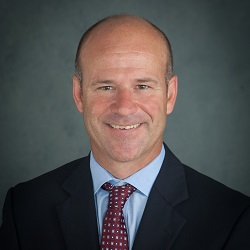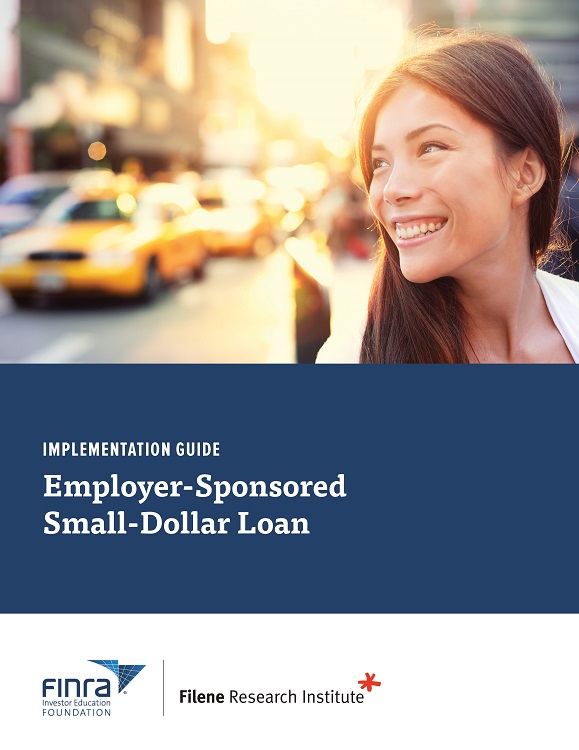Top-Level Takeaways
-
Loans to help members reach their next payday harken to the movement’s roots as an employee-sponsored benefit.
-
According to a pilot program by Filene and the FINRA Foundation, the loans are effective and efficient.
-
Borrowers are less likely to default when lenders take payments directly from a borrower’s paycheck.

Bob Morgan, CEO, NorthCountry FCU
NorthCountry Federal Credit Union ($641.6M, Burlington, VT) began offering employer-sponsored small-dollar loans (ESSDLs) a dozen years ago as a way to help borrowers and their bosses alike.
Today, the Vermont cooperative has more than 40 private and public employers enrolled in its ESSDL program what NorthCountry calls income advance loans and encourages cooperatives everywhere to consider doing the same.
The idea is simple but powerful. Employers enroll in the program and then offer the loans as a benefit of employment, sometimes with loan reserves bolstered by company contributions.
The credit union offers these short-term notes at rates far lower than those extended by payday lenders and takes payments from the employees’ direct deposit paychecks. Borrowers must ask their HR department to stop the direct deposits, which serves as a disincentive to non-performance and helps dampen delinquencies. Typically, NorthCountry does not pull credit reports but does report successful repayment to the credit bureaus.
Employers, meanwhile, benefit by addressing a life stressor for financially vulnerable members among the workforce. The credit union gains members who might potentially expand their relationship beyond the income advance loans.
NorthCountry has made more than 4,600 income advance loans since 2007. The average note ranges from $1,100 to $1,200 at a maximum rate of 16.99%. There’s no formal underwriting; the credit union approves all employer-referred employees that have met the employer’s requirement for length of employment and are in good standing at work. They must also pay back the loan in six months.
NorthCountry president and CEO Bob Morgan, who joined the credit union in 2000 and assumed the top job in 2012, says the income advance loans do have higher delinquency and charge-off rates than traditional lending, but that’s built into the relationship.
Sustainable Business Strategy
Learn more about Sustainable Business Strategy with Rebecca Henderson, in collaboration with Harvard Business School online. The Callahan Academy combines Harvard teachings and credit union industry discussions to explore:
- Business models that drive change.
- Tactics that demonstrate the competitive advantages of being a purpose-driven firm.
- Why collective efforts are important and how business can be a catalyst for system-level change.
- What you can do to become a purpose-driven leader and how you can develop purpose-driven leaders within you organization.
The employers pay an annual fee based on the projected losses, usually about 4% and totaling only a few hundred bucks, Morgan says. The losses are within an acceptable range to us.
In fact, according to Morgan, the loans represent less than $1 million in a $500 million portfolio and do not materially impact the credit union’s bottom line.
But it’s not all about the bottom line. The credit union does earn some income and attract new members from the program, but NorthCountry offers these loans primarily because it’s the right thing to do, Morgan says, noting that many of the borrowers are from low-income, underbanked communities.
Morgan adds that keeping it simple is the best advice he can offer.
I can’t tell you the number of times we’ve been on the phone with places that wanted to do this, and then they start talking about underwriting standards and looking at credit reports and all that, the CEO says. This is small-dollar lending. Know your numbers and price it like that. Keep the process efficient.
Learning From Payday Lenders
Jeff Smith, NorthCountry’s senior vice president of lending, echoes Morgan’s advice to keep it simple.
The payday lenders have it nailed, Smith says. They find a way to say yes without judgment. That’s what our program does. Financial emergencies are one of the biggest reasons people have to separate from their employment. Income advance loans from their credit union can help with that.
Such loans harken back to the reason credit unions were created in the first place: to extend credit to people who otherwise would be left out of the financial mainstream.
It’s a way for credit unions to meet their historical mandate to serve underserved people in a way that’s financially sustainable for the cooperative, says Susan Sarver, director of Financial Wellness Outreach for the FINRA Investor Education Foundation.
ESSDL programs also can counter growing competition from fintechs.
You’re providing a solution that can only happen in your community and that encourages borrowers to have a relationship with your financial institution, Sarver says.
The FINRA Foundation and the Filene Research Foundation recently concluded a two-year study of ESSDL programs, which included pilot testing by 13 credit unions at 48 employers in eight states. Credit union participants granted more than 1,000 loans for a total volume of $1.2 million, and borrowers who opted into a post-payoff savings option built-up a cushion of more than $42,000.
Recommended Reading
Considering employee-sponsored small-dollar loans? Want to learn more? Check out these resources.
- NorthCountry FCU Memorandum of Understanding for employer participants in its income advance lending program.
- Day Air Credit Union MOU with Life Assistance Loan terms and processes.
- Filene’s ESSDL Feasibility Study Report.
- ESDDL Implementation Guide.
- Filene’s June 2019 report on workplace financial well-being.
- Survey research on the attentiveness of employers to the financial well-being of their employees. Page 12 shows that employers overwhelmingly cite values-based reasons for offering financial well-being programs above bottom line considerations.
- Brigham Young University Journal of Public Law article about small-dollar loans that includes a discussion about employer-sponsored solutions on page 126.
Serving The Community
Meanwhile, according to an executive summary in the final report, the (ESSDLs) outperformed financial projections, with reported loss rates ranging from 2% to 3% Participating credit unions also reported that the program is recognized as a valuable community service.
In fact, according to the study, employers can offer ESSDL programs as a stand-alone benefit, however, partnerships with non-profit community partners enhance program uptake and implementation. The study also concluded that ESSDL programs meet important needs for both employees and employers; that competition is minimal and often predatory; and that implementation is easy.
We test a lot of programs, and sometimes we see one that’s too relevant to ignore, says Filene incubator director Adam Lee. This is one of those. The time has come to offer employee-sponsored small-dollar loan programs at the widest possible scale.
Lee says he’s not certain how many credit unions offer employee-sponsored. However, 36 implemented them during the Filene/FINRA Foundation pilot and at least 10 more have adopted them since.
He also says there have been more than 350 downloads of the free resources for credit unions including an implementation guide and marketing materials available on the Filene website.

The Filene Institute and FINRA Foundation offer a 68-page implementation guide for company-sponsored small-dollar loan programs. Click here to download it.
Making Loans At Manatee

Sherod Halliburton, President, Manatee FCU
Manatee Community Federal Credit Union ($34.2M, Bradenton, FL) began offering employee-sponsored loans four years ago in cooperation with a couple of community action agencies and the city of Bradenton.
The credit union began by offering the loans to agency clients but then migrated to offering them to agency employees through their employers, who recognized the need.
This is a product that helps people who might have a financial challenge and appeals to employers because employers are basically an employee’s first line of financial defense, even if some employers don’t want to acknowledge that, says Sherod Halliburton, president at Manatee Community.
The credit union approves loans based on ability to repay but no longer makes such loans to temporary workers. According to Halliburton, not one borrower has stopped the automatic payments, however, defaults do tend to occur when an employee leaves before paying off the loan.
Now, Manatee’s ESSDL program is getting a potential boost. The credit union has signed on the St. Petersburg Chapter of the Service Employees International Union with an eye toward serving the big labor union’s members across the Sunshine State.
They include moderate-income service workers, low-wage hospital employees, adjunct professors, Head Start workers, and public and municipal workers, Halliburton says. We could be growing this exponentially.
Halliburton says he’s currently discussing with SEIU the possibility of the labor union providing loan loss reserves that could help drive down the rate to 10.9% from its current 14.9%.
A Day Air In The Life

John Theobald, Vice President of Lending, Day Air Credit Union
Like NorthCountry and Manatee Community, Day Air Credit Union($413.7M, Kettering, OH) worked with Filene and the FINRA Foundation and began offering ESSDL loans in June.
Day Air is offering its Life Assistance Loan program through a coalition of three employers that wanted to help their 1,000 or so employees with life challenges, such as finances, babysitting, job coaching, and work punctuality, says John Theobald, Day Air’s vice president of lending.
This coalition along with Filene made us aware of the need and opportunity, Theobald says. The more we learned the more we saw how well the solution fit with our mission.
The coalition hired a former Day Air employee of 18 years as a life coach who’s responsible for connecting employees with various resources based on the need.
Theobald says the credit union has made only a couple of loans so far, but he can see Day Air eventually making 250 or so every year.
Far too many of our members have been victims to payday lender shenanigans, Theobald says. We’re always looking for opportunities to help these members get out of that vicious cycle or prevent them from entering it in the first place.